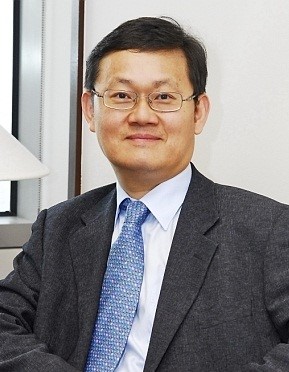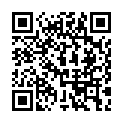1. What are the distinguishing features of your organization?
The Asiatic Research Institute (ARI) was founded as the ROK’s first university-affiliated research institute in 1957 when research on the Asian region was almost nonexistent. The ARI has been carrying out comprehensive research on social, cultural, historical, political, and economic aspects of Asian countries with the mission of contributing toward enhancing human understanding of each other and promoting cultural progress. The institute has engaged in prolific research on Northeast Asian relations among the ROK, China, and Japan; in addition, some studies have concentrated on North Korea. The institute has published hundreds of volumes in multiple research series and sourcebooks about East Asia.
This year marks the ARI’s 60th anniversary. The institute has sought to establish a research network at home and abroad since its inception, and it has maintained close research exchanges over a long period with other research institutes in Northeast Asian countries. Based on its human and physical research infrastructure constructed over time, the ARI is striving to fulfill its vision to become one of the world’s finest comprehensive research institutions focused on Northeast Asian studies.
2. What kinds of researches related to the three countries have been conducted in your organization? Please introduce your previous and current research.
The ARI has ample experience in research collaborations with other international institutes when it comes to Northeast Asia studies. The most representative achievement is the Korea-Japan Joint Research Series consisting of 21 volumes that were published in both the ROK and Japan as a result of 10 years of research beginning in 1996 through the ROK-Japan Joint Research Forum. The institute has also carried out a variety of collaborative projects with research institutes from Chinese universities on a regular basis.
The institute was selected as a recipient research institute in the field of regional studies by the National Research Foundation of Korea (NRF) as a part of the government-sponsored project called Humanities Korea (HK). Additionally, the ARI has been funded for the 10-year project to establish world-class research institutes in the Northeast Asian region. Researchers at the institute have been working on an array of projects for “Transnational Space in Northeast Asia: Intellectual and Socio-cultural Exchanges, Institutional Interactions, and Their Restructurings.” The institute has also been publishing papers about outstanding Korean and international researchers who have concentrated on Northeast Asia issues since 2009 in the Northeast Asia ARI Monograph Series.
Moreover, the ARI has been hosting the East Asian Community Forum with top universities in Northeast Asian countries including the ROK, China, and Japan every year since 2011, thereby strengthening continuous academic relationships among major research institutes and many researchers in Northeast Asia.
As a leading research institute in the ROK, the ARI will continue to advance its joint research and collaborative projects with other outstanding research institutes in the region.
3. What is your future prospect for trilateral cooperation and what kind of research should be done to that end? Also, what kind of role the Trilateral Cooperation Secretariat (TCS) can play for this purpose?
Asia has been playing an increasingly significant role in international economics and politics in the 21st century. The Northeast Asia region, where the ROK, China, and Japan are located, has been attracting the world’s attention.
The ROK, China, and Japan show a high interdependency with each other in terms of politics and economics; however, competition is also very high among them, which hinders cooperation. There has not been a well-functioning cooperative system for resolving conflicts among the three countries. More efforts should be made to put past conflicts and confrontations aside and seek peace and prosperity for all. This calls for a system characterized by political, diplomatic, and economic cooperation.
An effective system or institution that can help the three countries support each other and jointly respond to problems that affect all of them, such as trade disputes and the ripple effects of macroeconomic policies, should be established. By entering into a free trade agreement, the ROK, China, and Japan could work toward building a shared market so that goods and service can be traded freely and skilled labor can move without restrictions. The three nations also need to develop their financial markets cooperatively to handle the problem of increasingly unstable international financial and foreign exchange markets; further, they should strengthen monetary and foreign exchange policy cooperation to establish a more stable financial market. In addition to enhancing economic cooperation, more dialogue and cooperative institutions need to be created at the governmental and private level to deal with other important problems that influence the three countries. North Korea’s nuclear programs are threatening not only the entire Korean peninsula but also the peace and prosperity of all Northeast Asian countries. Therefore, promoting trilateral cooperation is crucial for bringing North Korea to the framework for dialogue and cooperation.
Through the framework of the Trilateral Cooperation Secretariat, I hope that the three Northeast Asian countries will be committed to institutionalizing trilateral cooperation so as to contribute significantly to peace and prosperity in Northeast Asia.
Lee Jong-wha Lee Jong-wha, the director of the Asiatic Research Institution of Korea University, is currently an economics professor at the same university. He has served as a senior economist and director of the Regional Cooperation Department at the Asian Development Bank (ADB), an advisor for international economic affairs at the Blue House, and Sherpa (emissary) to the G20. After graduating from the Department of Economics at Korea University, he earned his master’s and Ph.D. degrees at Harvard University. He has served as an economist for the International Monetary Fund (IMF), a researcher at the National Bureau of Economic Research (NBER), a professor at Korea University, a visiting professor at Harvard University, Australian National University, and the Hoover Institution (U.S.); and an advisor at the World Bank and United Nations Development Programme (UNDP). He has published many books and papers on economic growth, human capital, financial crises, and economic integration.
| |  |


